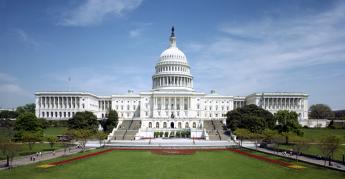Related Topics
Investing, Philadelphia Style
Land ownership once was the only practical form of savings, until banking matured in the mid-19th century. Philadelphia took an early lead in what is now called investment and still defines a certain style of it.
Medical Economics
Some Philadelphia physicians are contributors to current national debates on the financing of medical care.
Favorite Reflections
 In no particular order, here are the author's own favorites.
In no particular order, here are the author's own favorites.
Old Age
New topic 2019-04-09 16:04:33 description
Reminiscences
"The past is never dead. It's not even past." -- William Faulkner, Requiem for a Nun
Personal Passions
My own personal short list; eight decades in retrospect.
Favorites - II
More favorites. Under construction.
Insurance-Like Financial Retirement
There are other ways to support retirement, but most retirement plans before the public are based on the insurance model.
Health Savings Accounts
The legislation removes the hampering restrictions of the 1995 Law. What follows is a brief outline of the main features of the HSA/MSA clause in the 2003 law,

|
| U.S. Capital |
as published by the main authorizing committee, the House of Representatives, Committee on Ways and Means. From this point forward, more specifics of the program will probably be written by the Executive Branch and published in the Federal Register. The Ways and Means Committee will continue to exercise oversight authority, however, in conjunction with the Senate Finance Committee. As a consequence, statutory modifications of the program are likely to appear in future annual budget reconciliation acts, or else in any new Medicare amendments. The legislative route map becomes more understandable when it is recalled that Medicare itself is considered to be an amendment (Title XVIII) of the Social Security Act.
Committee on Ways and Means
Medicare Prescription Drugs, Improvement And Modernization Act of 2003
Health Savings Accounts (HSA's)
Lifetime savings for Health Care
Working under the age of 65 can accumulate tax-free savings for lifetime health can needs if they have qualified health plans.
A qualified health plan has a minimum deductible of $1,000 with $5,000 cap on out-of-pocket expenses for self-only policies. These amounts are doubled for family policies.
Preventive care services are not subject to the deductible.
Individuals can make pre-tax contributions of up to 100% of the health plan deductibles. The maximum annual contributions are $2,600 for individuals with self-only policies and $5,150 for families (indexed annually for inflation).
Pre-tax contributions can be made by individuals, their employers, and family members.
Individuals age 55-65 can make additional pre-tax "catch up" contributions of up to $1,000 annually (phased in).
Tax-free distributions are allowed for health care needs covered by the insurance policy. Tax-free distributions can also be made for the continuation coverage required by Federal law (i.e., COBRA), health insurance for the unemployed, and long-term care insurance.
The individual owns the account. The savings follow the individual from job to job and into retirement.
HSA savings can be drawn down to pay for retiree health care once an individuals reach Medicare eligibility age.
Catch-up contributions during peak savings years allow individuals to build a nest egg to pay for retiree health needs. Catch-up contributions allow a married couple to save an additional $2,000 annually (once fully phased in if both spouses are at least 55.
Tax-free distributions can be used to pay for retiree health insurance (with no minimum deductible requirements), Medicare expenses, prescriptions drugs, and long-term care services, among other retiree health care expenses.
Upon death, HSA ownership may be transferred to the spouse on a tax-free basis.
Contain rising medical costs- HSA's will encourage individuals to buy health plans that better suit their needs so that insurance kicks in only when it is truly needed. Moreover, individuals will make cost-conscious decisions if they are spending their own money rather than someone else's.
Tax-free asset accumulation- Contributions are pre-tax, earnings are tax-free, and distributions are tax-free if used to pay for qualified, medical expenses.
Portability- Assets belong to the individual; they can be carried from job to job and into retirement.
Benefits for Medicare beneficiaries- HSA's can be used during retirement to pay for retiree health care, Medicare expenses, and prescription drugs. HSA's will provide the most benefits to seniors who are unlikely to have employer-provided health care during retirement. During their peak saving years, individuals can make pre-tax catch-up contributions.
Chairman Bill Thomas Committee on Ways and Means 11/19/2003 12:56 PM
Originally published: Thursday, June 22, 2006; most-recently modified: Wednesday, May 22, 2019
| Posted by: George Fisher | May 19, 2008 4:50 PM |
| Posted by: Rob | May 19, 2008 7:47 AM |